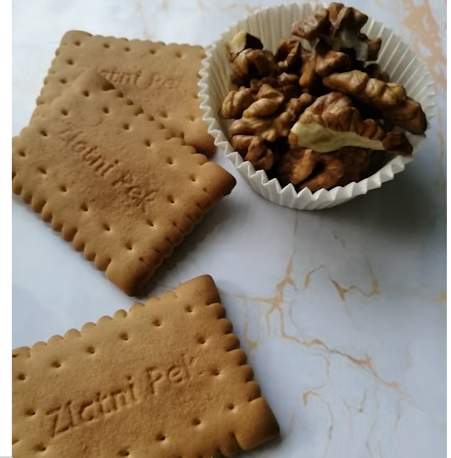Discovering Mabou Loiseau – Pint-Size Polyglot
When most kids were learning to tie their shoes, Mabou Loiseau was already mastering languages from around the globe. This incredible story of discovering Mabou Loiseau takes us into the fascinating world of a child prodigy who could speak eight languages and play eight musical instruments all before her ninth birthday.
Her journey shows us that extraordinary talent can bloom at any age, inspiring families everywhere to nurture their children’s unique gifts. Furthermore, her story teaches us valuable lessons about dedication, family support, and following your dreams.
Discovering Mabou Losieau
Discovering Mabou Loiseau became a worldwide phenomenon when she appeared on national television in 2014, confidently declaring “I was born smart, duh!” on the Katie Couric show. At just eight years old, this remarkable young lady from Queens, New York, could speak English, Kreyol, Spanish, French, Russian, Arabic, Mandarin, and American Sign Language.
What made her story even more amazing was that she was also learning Japanese while taking college-level algebra classes. Additionally, she had mastered eight different musical instruments, including piano, harp, violin, guitar, clarinet, drums, conga, and flute.
Discovering Mabou Loiseau’s Multilingual Magic
The secret to Mabou’s incredible language skills started right at home with a very special family approach. Her mother, Esther Loiseau, was a piano teacher who had taught French at an American school before moving from Haiti to Queens. “My husband spoke Haitian Creole fluently, so he only spoke to Mabou in Haitian Creole,” Esther explained in an interview.
“My sister, who lived with us for some time, spoke Spanish fluently, so she only spoke to Mabou in Spanish. I spoke French fluently, so I spoke to her only in French.” This unique family environment created a perfect learning laboratory where different languages flowed naturally through daily conversations. Moreover, this approach shows how parents can use their own cultural backgrounds to give their children fantastic opportunities.
Discovering Mabou Loiseau’s Early Signs of Genius
Even before Mabou turned two years old, her family noticed something extraordinary happening. When Mabou was only one and a half years old, she started repeating some words in French that she had not yet been taught. Interestingly, she knew the meaning of those words, and this was when Esther realized that her daughter had a gift. This early display of natural language ability would soon blossom into something truly remarkable. Consequently, her parents began investing heavily in her education and language development.
Discovering Mabou Loiseau’s Daily Learning Routine
By age eight, Mabou’s daily schedule was unlike any other child’s routine. By age five, Mabou’s parents were spending $1,500 a week on tutors and lessons, including hiring nannies who spoke different languages. Her typical weekday looked like this:
- 8 a.m. – 11:00 a.m.: Russian-speaking nanny time for language immersion
- 11:00 a.m. – 1 p.m.: Lunch break and free activity time
- • 1 p.m. – 5 p.m.: Arabic-speaking nanny for afternoon language practice
- 5 p.m. – 6 p.m.: Personal choice activity time
- 6 p.m. – 7 p.m.: Music lessons (harp, guitar, violin, or piano)
- 8 p.m. – 9 p.m.: Swimming lessons for physical fitness
Despite this busy schedule, her mother made sure Mabou had plenty of time to just be a kid. “Many people make that mistake, thinking I am pushing her. She is pushing me. Believe me,” Esther said of her daughter. This balance between intensive learning and childhood play became crucial for Mabou’s healthy development. As a result, she grew up feeling excited about learning rather than overwhelmed by pressure.
Discovering Mabou Loiseau’s Evolution Beyond Languages
Now in her teenage years, Mabou recently added more to her list of talents — singing, painting and dancing. Her YouTube channel has more than 9,000 subscribers. She continues working toward her ambitious career goals that she set as a young child. “I defend myself pretty well, so maybe I can defend other people. I want to understand the brain. It’s very fascinating. I want to be a singer…” Mabou said when she was eight. Today, she remains focused on becoming a brain surgeon, singer, and lawyer – showing that her childhood dreams continue to guide her path. Ultimately, her story proves that early talents can grow and evolve throughout life.
The Science Behind Discovering Mabou Loiseau and Other Child Prodigies
Research shows that a child prodigy is, technically, a child under the age of 10 who produces meaningful work in some domain at the level of an adult expert. Scientists have discovered some fascinating facts about these remarkable children:
How Common Are Child Prodigies?
Estimates suggest that only about 0.00002% to 0.00001% of the global population can be classified as child prodigies. This means true prodigies are incredibly rare – just one in 5 or 10 million, according to one psychologist. To put this in perspective, you’re more likely to be struck by lightning than to meet a genuine child prodigy! Nevertheless, this rarity makes stories like Mabou’s even more special and inspiring.
What Makes a Prodigy Different?
Generally, prodigies in all domains are suggested to have relatively elevated IQ, extraordinary memory, and exceptional attention to detail. However, intelligence alone isn’t enough. “But I believe that anything that shows up so early, without training, has got to be either a genetic or some other biological basis,” Winner says.
“If a child suddenly at age 3 goes to the piano and picks out a tune and does it beautifully, that has to be because that child has a different brain.” In addition, experts believe that both genetics and environment work together to create these extraordinary abilities.
Final Thoughts
Mabou Loiseau’s incredible journey from a multilingual toddler to a teenage polyglot with multiple talents shows us the incredible potential that exists within young minds. Her story teaches us that with the right family support, early recognition of gifts, and a balanced approach to learning, children can achieve truly remarkable things. While not every child will become a prodigy like Mabou, her example inspires us to pay attention to our children’s unique interests and abilities.
What makes Mabou’s story particularly special is how her family created an environment where multiple languages and cultures were celebrated daily. This natural approach to learning, combined with structured lessons and plenty of time for play, helped her develop into a well-rounded young person with ambitious goals for her future.
As Mabou continues growing and pursuing her dreams of becoming a brain surgeon, singer, and lawyer, she remains an inspiring example of how early gifts can be nurtured into lifelong passions. Her journey reminds us that every child has unique potential waiting to be discovered and developed.
This balance between intensive learning and childhood play became crucial for Mabou’s healthy development. As a result, she grew up feeling excited about learning rather than overwhelmed by pressure. Mabou’s parent provided many opportunities for Mabou, which included extensive travel. They always made sure they had all of their travel essentials. Learn more here: Easy Guide to Travel Essentials: Never Leave Home Without Them
Key Success Factors for Child Polyglots
| Factor | Mabou’s Example | Impact |
| Family Support | Parents spent $1,500/week on education | Created strong foundation for learning |
| Natural Environment | Multiple languages spoken at home daily | Made language learning feel normal and fun |
| Balanced Schedule | Study time + play time + personal interests | Prevented burnout and maintained joy in learning |
| Early Recognition | Parents noticed gifts before age 2 | Allowed for the proper nurturing of talents |
| Diverse Exposure | Languages, music, academics, sports | Developed well-rounded skills and interests |
References and Sources
- Face2Face Africa. (2020). “Supergirl Mabou Loiseau could speak eight languages and play eight instruments at age eight.”
- Black Campus Online. (2024). “Mabou Loiseau: A Teenage Polyglot, Instrumentalist.”
- Legit.ng. (2020). “Mabou Loiseau: 13-year-old budding singer who could speak 8 languages at age 8.”
- NPR Health Shots. (2013). “Studying The Science Behind Child Prodigies.”
- Geniuses.Club. “Unraveling the Enigma of Child Prodigies: A Deep Dive into Their World of Brilliance.”
- The Saturday Evening Post. (2018). “The Fate of Child Prodigies.”
Frequently Asked Questions
What determines if a child is super gifted?
A child prodigy is, technically, a child under the age of 10 who produces meaningful work in some domain at the level of an adult expert. Super-gifted children typically show exceptional abilities very early, extraordinary memory, high IQ, and intense focus on their areas of interest. They often master complex skills without formal training and perform at levels that amaze adults.
Do genes play a part if a child is a prodigy?
Yes, research strongly suggests genetics plays a significant role. “But I believe that anything that shows up so early, without training, has got to be either a genetic or some other biological basis,” according to psychology experts.
However, genes work together with environment and practice – having the proper family support and learning opportunities is equally important for developing these natural gifts.
What country has the most child prodigies?
A study published in the Journal of the Royal Society of Medicine reveals that music is the most common domain for prodigies, followed by chess, mathematics, and visual arts.
While no single country dominates, nations with strong educational systems and cultural emphasis on music, mathematics, or chess tend to produce more recognized prodigies. Countries like Russia, China, India, and the United States have made many notable child prodigies in recent decades.
How does this change the parent-child dynamic?
Raising a prodigy creates unique challenges and opportunities for families. Parents often need to invest significant time and money in specialized education, as seen in Mabou’s family, which spends $1,500 weekly on tutors. The key is maintaining balance – “Many people make that mistake, thinking I am pushing her.
She is pushing me. Believe me,” as Mabou’s mother explained. Successful families focus on supporting the child’s natural interests rather than forcing achievement.
What challenges do child prodigies face?
Child prodigies often struggle with social connections since their intellectual abilities far exceed their age peers. “I didn’t have many friends as a child, mainly because I was so focused on the music,” shared one former prodigy.
They may also face pressure to consistently excel and difficulty transitioning from childhood success to adult achievement. “Prodigiousness in childhood is not always maintained into adulthood.”
How many children are in the range as child prodigies?
True child prodigies are extremely rare. Estimates suggest that only about 0.00002% to 0.00001% of the global population can be classified as child prodigies.
While only a small percentage — 6 to 10 percent — are smart enough to be classified as “gifted,” genuine prodigies represent just one in 5 or 10 million, according to one psychologist. This makes children like Mabou incredibly special and rare.
The Roving Travel Team
(w) rovingwithrachele.com
(e) rachele@rovingwithrachele.com
References
News – Tagged “Super Girl”– Made in Africa Brand.
https://africax5.tv/blogs/news/tagged/super-girl
Supergirl Mabou Loiseau could speak eight languages and play eight instruments at age eight – Face2Face Africa. https://face2faceafrica.com/article/supergirl-mabou-loiseau-could-speak-eight-languages-and-play-eight-instruments-at-age-eight/amp
Feature News: Supergirl Mabou Loiseau Could Speak Eight Languages And – Made in Africa Brand. https://africax5.tv/blogs/news/feature-news-supergirl-mabou-loiseau-could-speak-eight-languages-and-play-eight-instruments-at-age-eight
Child prodigy – Wikipedia. https://en.wikipedia.org/wiki/Child_prodigy
Geniuses – Unraveling the Enigma of Child Prodigies: A Deep Dive into Their World of Brilliance. https://geniuses.club/kid-stats
The Fate of Child Prodigies – The Saturday Evening Post – Brite Medical Centre. https://britemedicalqa.com/the-fate-of-child-prodigies-the-saturday-evening-post/
module catalogue nottingham. http://congresopequenosanimales2016.vetcan.org/k5vqpd/dojg5.php?tag=module-catalogue-nottingham-d62ad9
Studying The Science Behind Child Prodigies | GBH. https://www.wgbh.org/news/2013-10-03/studying-the-science-behind-child-prodigies







